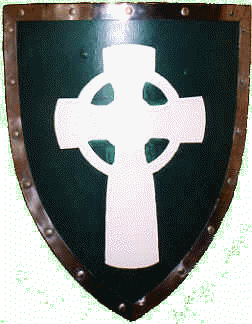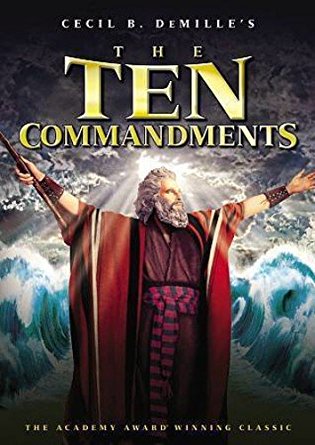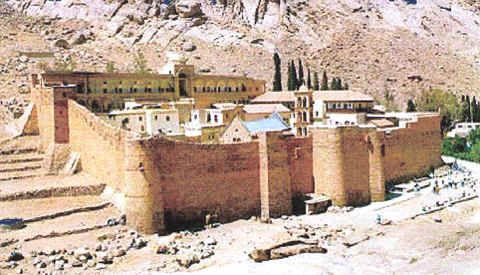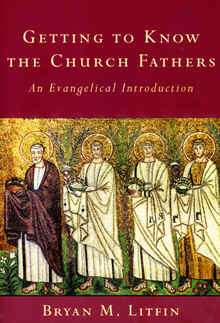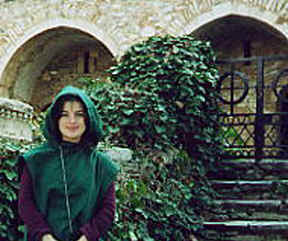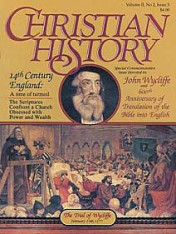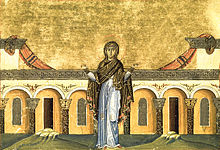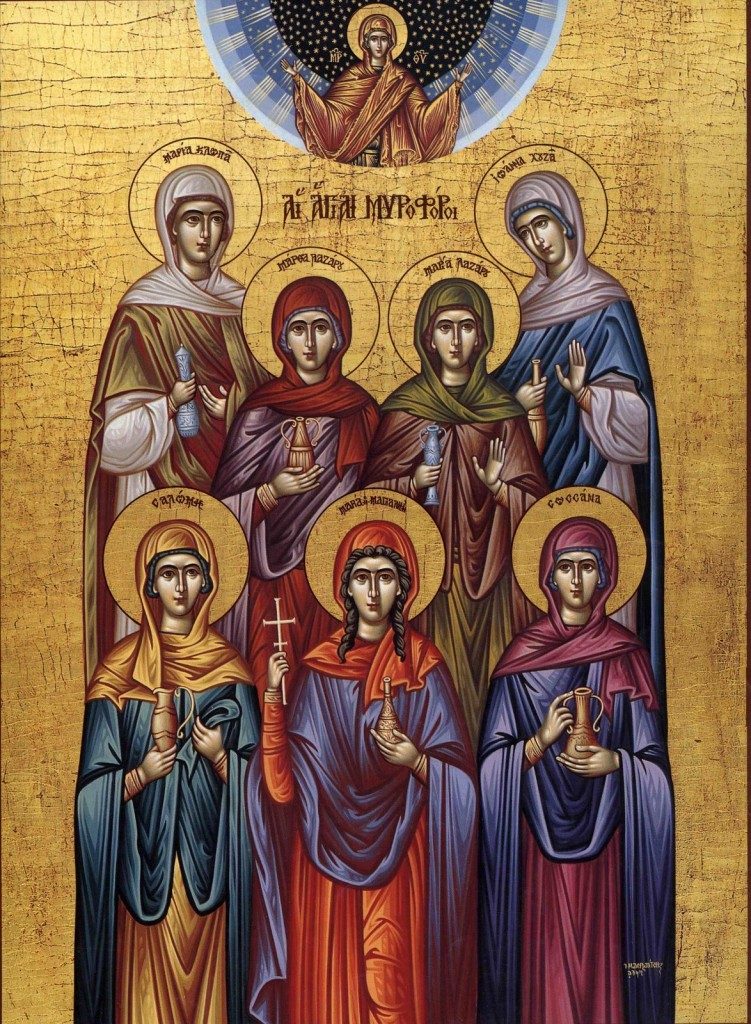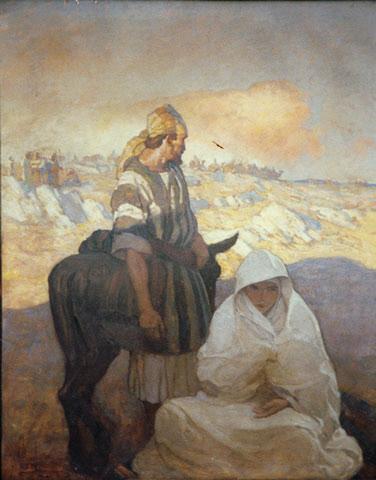The Slightly Different Arrangements of: Judaism, Eastern Orthodoxy, Roman Catholicism, and Protestantism

THE TEN COMMANDMENTS (Versions)
King James
(Excerpted from Exodus 20:1-17)
(1.) I am the LORD thy God. Thou shalt have no other gods before me.
(2.) Thou shalt not make unto thee any graven image. Thou shall not bow down to them, nor serve them.
(3.) Thou shalt not take the name of the LORD thy God in vain.
(4.) Remember the Sabbath day, to keep it holy.
(5.) Honor thy father and thy mother: that thy days may be long upon the land.
(6.) Thou shalt not kill.
(7.) Thou shalt not commit adultery.
(8.) Thou shalt not steal.
(9.) Thou shalt not bear false witness.
(10.) Thou shalt not covet anything that is thy neighbor’s.
____________________________________
New Testament Verses: (KJV)
(1.) Thou shalt worship the Lord thy God, and him only shalt thou serve. -Matthew 4:10
(2.) Little children, keep yourselves from idols. -1 John 5:21,29
Forasmuch then as we are the offspring of God, we ought not to think that the Godhead is like unto gold, or silver, or stone, graven by art and man’s device. -Acts 17:29
(3.)…that the name of God and his doctrine be not blasphemed. -1 Timothy 6:1
(4.) One man esteems one day above another: another esteems every day alike. Let every man be fully persuaded in his own mind. -Romans 14:5
And upon the first day of the week, when the disciples came together to break bread, Paul preached to them. -Acts 20:7
I was in the Spirit on the Lord’s Day. -Revelation 1:10
(5.) Honour thy father and thy mother. -Matthew 19:19
(6.) Thou shalt not kill. -Romans 13:9
(7.) Thou shalt not commit adultery. -Matthew 19:19
(8.) Thou shalt not steal. -Romans 13:9
(9.) Thou shalt not bear false witness. -Romans 13:9
(10.) Thou shalt not covet. -Romans 13:9 _________________________________________

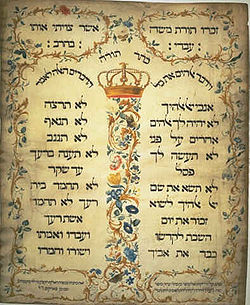
Memorizing The Ten Commandments
by Lay Monk S.G. Preston

THE TEN COMMANDMENTS (Versions) Different Divisions and Wording
Many years ago, I was reading Philip Schaff’s Trilogy: The Creeds of Christendom. Admittedly, this is not a Series that would interest everyone, but I do highly recommend to all, his excellent and very readable Eight Volume Series: History of the Christian Church.
Schaff mentioned that the Protestant Reformers had children memorize The Ten Commandments (along with The Lord’s Prayer and the Nicene and/or Apostle’s Creeds). I decided that I also wanted to memorize The Ten Commandments.
To my great surprise, I learned that the Jewish, the several kinds of Protestant, the Eastern Orthodox, and the Roman Catholic divisions and wordings, had slight differences.
You will want to memorize the version your own Church uses, if it uses a specific version, but what if it doesn’t?
The Lutheran and Roman Catholic versions are similar to each other in divisions, but use different wording. Different from both, is the division used by the Eastern Orthodox, which is similar to Anglican, Reformed, and most Protestant Churches. The Jewish division is different again from all of them.
What Version Did Jesus Memorize?
It occurred to me: wouldn’t the Jewish version, the one Jesus learned, be the correct one? It turns out that the current Jewish version, known as The Talmudic Division, didn’t even exist until the third century.
In the time of Jesus, what was in use was known as The Philonic Division, mentioned by both of the two major Jewish Historians of the time: Josephus and Philo. This version turns out to be very similar to what Eastern Orthodox and most Protestants (non-Lutheran) use.
The Ten Commandments are recorded in context in Exodus 20:1-17, and in even more extensive context in Deuteronomy 5:7-21. The listing in Exodus seems to me to be more in keeping with the brevity generally used.
The version I compiled, memorized, and included in our Worship Service, is posted in the Column at the Lower Right of this page. I have updated the word kill to murder, because that is the actual meaning of the original Hebrew word: ratsah.
Eliezer Segal writes:
“The word kill in English is an all encompassing verb that covers the taking of life in all forms and for all classes of victims. That kind of generalization is expressed in Hebrew through the verb: harag. However, the verb that appears in the Torah’s prohibition is a completely different one: ratsah, which should be rendered murder. This root refers only to criminal acts of killing.”
-Excerpted from: “Thou Shalt Not Murder” by Eliezer Segal, “Jewish Free Press,” October 19, 2000; p.8. Eliezer Segal has written several books, and more than 350 editions of his Column “From the Sources,” concerning Judaism and related areas.
The Greek Septuagint translation correctly translated the Hebrew word ratsah into Greek using the Greek word for murder. The King James Version, usually very accurate in its rendering of Hebrew words, here retains Jerome’s translation “kill,” found in his Latin Vulgate version.
| Commandment: | Jewish Talmud 3rd Century *** | Anglican, Reformed and other Protestant Groups | Eastern Orthodox | Roman Catholic, Lutheran ** |
|---|---|---|---|---|
| I am the Lord your God | 1 | preface | 1 | 1 |
| You shall have no other gods before Me | 2 | 1 | ||
| You shall not make for yourself an idol | 2 | 2 | ||
| You shall not make wrongful use of the name of your God | 3 | 3 | 3 | 2 |
| Remember the Sabbath and keep it holy | 4 | 4 | 4 | 3 |
| Honor your father and mother | 5 | 5 | 5 | 4 |
| You shall not murder * | 6 | 6 | 6 | 5 |
| You shall not commit adultery | 7 | 7 | 7 | 6 |
| You shall not steal | 8 | 8 | 8 | 7 |
| You shall not bear false witness against your neighbor | 9 | 9 | 9 | 8 |
| You shall not covet your neighbor’s wife | 10 | 10 | 10 | 9 |
| You shall not covet anything that belongs to your neighbor | 10 |
* | Notes: The Roman Catholic Church (and the King James Version) uses the translation kill (less specific) instead of murder. |
| ** | Some Lutheran Churches use a slightly different division of the Ninth and Tenth Commandments (9. Thou shalt not covet thy neighbor’s house; 10. Thou shall not covet thy neighbor’s wife, or his workers, or his cattle, or anything that is your neighbor’s). |
| *** | The “Talmudic Division” is the breakdown held by modern Judaism, and dates to at least the Third Century. The “Philonic Division”, which dates to the first century, is found in the writings of Philo and Josephus. It ended the first commandment after verse 3 and lists the second commandment as verses 4-6, similar to most Protestants (non-Lutheran) and the Eastern Orthodox Church. |
Sources: “Division of Ten Commandments Chart” & Parchment Photo from Wikipedia: “The Ten Commandments” “Thou Shalt Not Murder” by Eliezer Segal, Jewish Free Press (Oct. 19, 2000; P. 8) _________________________________________________________________________________________ |
Exodus 20:1-17 (See also Deuteronomy 5:1-21)
Note: The Numbers shown Below are the Verse Numberings in Exodus, Chapter 20; not the Numbers of the Commandments (King James Version).
1. And God spake all these words, saying,
2. I am the Lord thy God, which have brought thee out of the land of Egypt, out of the house of bondage.
3. Thou shalt have no other gods before me.
4. Thou shalt not make unto thee any graven image, or any likeness of any thing that is in heaven above, or that is in the earth beneath, or that is in the water under the earth:
5. Thou shalt not bow down thyself to them, nor serve them; for I the Lord thy God am a jealous God, visiting the inquity of the fathers upon the children unto the third and fourth generation of them that hate me;
6. And showing mercy unto thousands of them that love me, and keep my commandments.
7. Thou shalt not take the name of the Lord thy God in vain: for the Lord will not hold him guiltless that taketh his name in vain.
8. Remember the sabbath day, to keep it holy.
9. Six days shalt thou labor, and do all thy work;
10. But the seventh day is the sabbath of the Lord thy God; in it thou shalt not do any work, thou, nor thy son, nor thy daughter, thy manservant, nor thy maidservant, nor thy cattle, nor thy stranger that is within thy gates:
11. For in six days the Lord made heaven and earth, the sea, and all that in them is, and rested the seventh day: wherefore the Lord blessed the sabbath day, and hallowed it.
12. Honor thy father and thy mother: that thy days may be long upon the land which the Lord thy God giveth thee.
13. Thou shalt not kill.
14. Thou shalt not commit adultery.
15. Thou shalt not steal.
16. Thou shalt not bear false witness against thy neighbor.
17. Thou shalt not covet thy neighbor’s house, thou shalt not covet thy neighbor’s wife, nor his manservant, nor his maidservant, nor his ox, nor his donkey, nor any thing that is thy neighbor’s. _______________________________________________________________
What is the Relationship of The Ten Commandments to the Law of Moses, and to Christians Today?

Some may point out that The Ten Commandments are part of the Law of Moses, and therefore do not apply to Christians:
“Blotting out the handwriting of ordinances that was against us, which was contrary to us, and took it out of the way, nailing it to His cross;” -Colossians 2:4
However, nine of The Ten Commandments are restated in the New Testament. The only one that is not, is the Fourth Commandment, concerning honoring the Sabbath.
As Christians we are free to either honor God on every day equally, or to especially honor Him on particular days:
“One person esteems one day above another: another esteems every day alike. Let everyone be fully persuaded in their own mind.” -Romans 14:5

The first Christians met on the first day of the week:
Sunday, The Lord’s Day; to especially honor the Lord each week on the Day of His Resurrection.
This occurred as a Christian custom from the earliest days of the Church, and is recorded in the new testament as being in the presence of, and with the blessing of, the Apostles.
Some Christians have chosen to meet and worship on Saturday, the Old Testament Jewish Sabbath.
They are free in Christ to do this, and Scripture states that those who have not the same practice are not to judge them in this, nor they to judge those whose practice is different from theirs.
“Let no one judge you as to your food or drink, or respecting a Holy Day, or of the New Moon, or of the Sabbath Days. These are a shadow of things to come, but the substance is Christ.” -Colossians 2:16-17
It is common for many of the Clergy to take Mondays off, because their Ministry requires them to do their work on Sundays.
The Principle of one day a week set aside for God, to rest from our ordinary labors, is present in all of these observances, but none of them are required by Scripture.
The Ten Commandments (Versions)
Below is the Version we Memorize:
The Ten Commandments
(1.) I am the LORD your God. You shall have no other gods but Me.
(2.) You shall not make for yourself a carved image, to be an idol; you shall not bow down to them, or serve them.
(3.) You shall not take the name of the LORD your God in vain.
(4.) Remember the Sabbath Day, to keep it holy.
(5.) Honor your father and your mother; that your days may be long upon the land.
(6.) You shall not murder.
(7.) You shall not commit adultery.
(8.) You shall not steal.
(9.) You shall not bear false witness.
(10.) You shall not covet anything that is your neighbor’s. ________________________
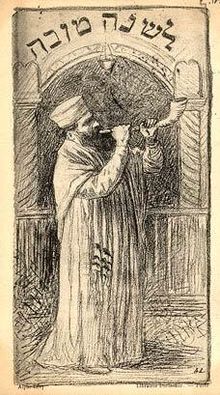
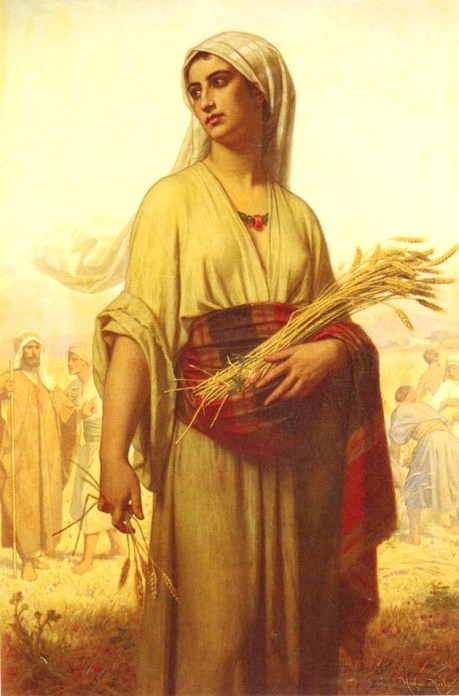
SAyiNGS Of tHE dESERt MOtHERS (AmmA SyNcLEticA):



“Amma Syncletica taught: ______________________
‘As that which is poisonous to the body is removed by the bitterest of medicines;
in the same way, prayer accompanied by fasting drives away evil thoughts.’” ______________________
‘Some live in the mountains, but they act like they are living in the towns;
they are solitary, but they live in the crowd of their own thoughts.
Others live in solitude in their own mind, even when in a crowded city.’” ______________________
-Sayings of the Desert Mothers
This Website: PrayerFoundation Evangelical Lay Monks ™ Built by: S.G. Preston Ministries ™
Copyright © 1999-2024 S.G. Preston. All Rights Reserved.
Photos & Text Copyright © 1999-2024 S.G. Preston. All Rights Reserved.
